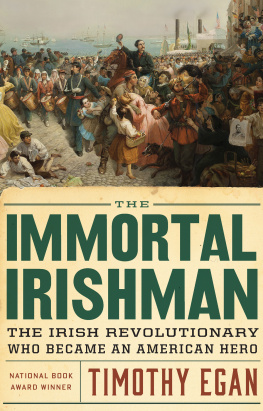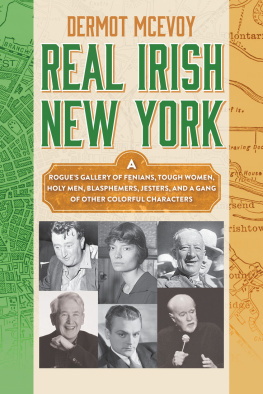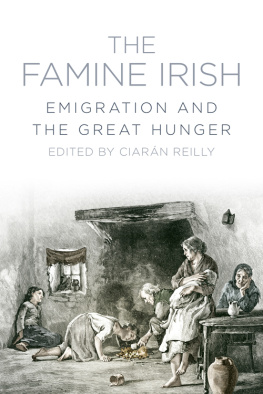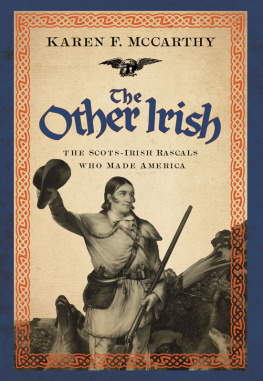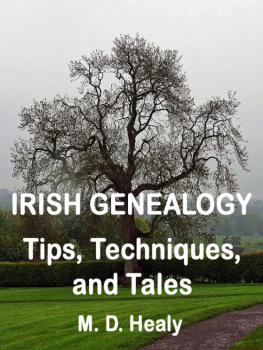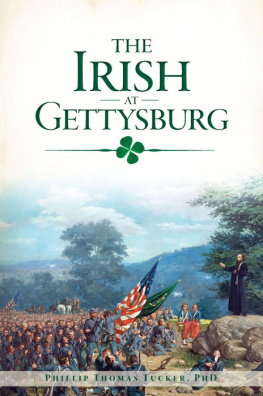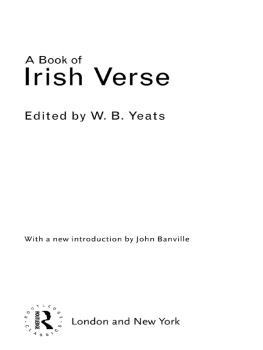Copyright 2016 by Timothy Egan
All rights reserved
For information about permission to reproduce selections from this book, write to or to Permissions, Houghton Mifflin Harcourt Publishing Company, 3 Park Avenue, 19th Floor, New York, New York 10016.
www.hmhco.com
The Library of Congress has cataloged the print edition as follows:
Names: Egan, Timothy.
Title: The immortal Irishman : the Irish revolutionary who became an American hero / Timothy Egan.
Description: Boston : Houghton Mifflin Harcourt, 2016. | Includes bib and index.
Identifiers: LCCN 2015037256| ISBN 9780544272880 (hardcover) | ISBN 9780544272477 (ebook)
Subjects: LCSH : Meagher, Thomas Francis, 18231867. | GeneralsUnited StatesBiography. | United States. ArmyOfficersBiography. | United States. Army of the Potomac. Irish Brigade | United StatesHistoryCivil War, 18611865Biography. | HeroesUnited StatesBiography. | Irish AmericansBiography. | RevolutionariesIrelandBiography. | PrisonersTasmaniaBiography. | GovernorsMontanaBiography. | BISAC: HISTORY / United States / Civil War Period (18501877). | HISTORY / United States / 19th Century. | HISTORY / Europe / Ireland. | HISTORY / United States / State & Local / West ( AK , CA , CO , HI , ID , MT , NV , UT , WY ). | BIOGRAPHY & AUTOBIOGRAPHY / Adventurers & Explorers. | HISTORY / Australia & New Zealand. | BIOGRAPHY & AUTOBIOGRAPHY / Historical.
Classification: LCC E 467.1. M 4 E 34 2016 | DDC 355.0092dc23
LC record available at http://lccn.loc.gov/2015037256
Cover design by Martha Kennedy
Cover art: Return of the 69th (Irish) Regiment (detail) by Louis Lang, courtesy of the New-York Historical Society
v1.0316
In memory of the family ancestors, Egans and Whites,
Lynches and Harrises.
Cast out of Ireland, they found homes in
Michigan, in Chicago, in Montana, in Seattle,
and never forgot where they came from.
We dont forget, we dont forget them things, Joxer.
If theyve taken everything else from us, Joxer, theyve
left us our memory.
SEAN O CASEY , Juno and the Paycock
Introduction:
Last DayJuly 1, 1867
Look to the edge of the swollen Missouri in Montana Territory, where the longest river on the continent holds a blush of twilight, to see what becomes of an Irishman just before he disappears. There he is, woozy and paper-legged on the upper deck of a steamboat at anchor. Not like himself. No great witticisms or Homeric allusions as the evening darkens. No stories ending in punch lines that prompt a toast. No snippets of mournful song. Not a jab of nationalistic indignity to rouse a heart. Though his face is bronzed by sun that squats on the high prairie for fifteen hours a day, his color is off: the blue of his eyes dimmed, the polish of his cheeks matted. He glances at the town, Fort Benton, scours the huddle of saloons, dancehalls, outfitters, cathouses and grub shacks known as the Bloodiest Block in the West. He cant be sure if that shadow, that clank of spurs on boardwalk, is harmless or the herald of an assassin. Saddle-blistered after a long ride through a territory nearly five times the size of Ireland, he should be falling into a deserved slumber. Instead he asks for a book and a gun from a new friend, John Doran.
Johnny, they threaten my life in that town, he tells the pilot of the G. A. Thompson. The ships guide, after a three-month journey upriver from St. Louis, is honored to host the greatest Irish American of his day. Eight hours earlier, when Doran heard that the Prince of Waterford had dismounted in a cloud of dust at Fort Benton, he immediately sought him out. Was this Thomas Francis Meagher, one and the same? The orator? Meagher of the Sword? The Civil War general? Yes, yes indeed. Meagher apologized for his illness, dysentery thats been with him for six days. They then spent the evening together, these two, swapping memories of their tortured island nation, sharing dinner, cigars and tea. Now Johnny has a pair of pistols to lend, he says. And just the book for hima novel to take him back to Ireland. Yet Meagher is still troubled, not ready for bed.
As I passed today, he tells Doran, I heard them say, There he goes.
And why shouldnt the human flotsam of Fort Benton say such a thing? Until a few days ago, he was governor of Montana Territory, ruler of a Rocky Mountain kingdom stretching from the Badlands to the Bitterroots, a place of sudden riches and ever more sudden death. Check thatacting governor, a man in transition. He is still searching for permanence, somewhere to anchor himself. Though his words moved people to risk their lives on three continents, and he looked for a home on four, he never found the place. Always the exile. I am here alone, hed confessed in a love letter some time ago. He had no family in this vast continent, hed lamented, no boyhood den to disappear into, no place he could find with his eyes closed. Most call him General Meagher, and some can even pronounce ita single syllable, Mar, an honorable surname from County Tipperary, descendant of tribal chieftains at that. More than once, this General Meagher had stormed into a blizzard of musketry to slay the defenders of slavery. He led the Irish Brigade, the storied castoffs who fought for the Union under a green flag of a harp and a sunburst. Knocked senseless and left for dead in one battle, in another he was left holding a best friend while the soldiers heart gave out. This was the price to be accepted as an American.
There he goes.
He can count the enemies: the Brits, certainly. Meagher is a fugitive, still, in the eyes of the mightiest empire on earth. No matter his U.S. citizenship, his officers rank or his marriage to a well-known New Yorker with an impeccable colonial Protestant lineage. This governor is a convict. A wanted man. Another Paddy from the penal colony. Should he try to return to his fathers home along the Suir, the authorities would shackle him to a moldy cell in the Kilmainham Gaol. Then, perhaps, back to Tasmania, where Great Britain had banished him among the brightest of Irelands noncompliant political class.
The enduring struggle, dating to the twelfth century, could still cause a dustup in the nineteenth-century American West, 4,300 miles from the wellspring of all the ancient hatred. Meaghers very existence, defying Englands repeated efforts to bury him, was a threat in the most troublesome part of the Empire. Meagher had shown the world that the Irish could fight, that immigrants and petty criminals from the hard filth of New York and the waterfront warrens of Boston would risk life in a civil war that was not theirs. And he made no secret of the bigger design: after they finished with the South, these same Irishmen, seasoned soldiers now, would steam across the Atlantic and liberate their homeland. Thomas Meagher, lover of verse, a man who got his start using speech as a weapon, leading the way. Dont laugh. The Wild Geesetriumphant at last.
More likely, the men who muttered There he goes on Fort Bentons sun-cracked, uneven walkways are enemies from within Montana. Vigilantes top the list. When Meagher arrived in Virginia City with his acting governors title, the law belonged to a stiff-collared cabal whod been there first. By the end of 1865, they had hanged forty citizens in barely two years time, leaving the victims to sway from a favored tree for days in case somebody missed the point. Meagher believed that the hasty arrest and secretive sentencing of one poor soul was an outragean affront to the American sensibilities that hed embraced with the guileless fervor of a new citizen. He issued a reprieve, which infuriated the vigilantes. Within a day, a posse grabbed the newly freed man and strung him from Helenas hanging treethe governors get-out-of-jail card still in his back pocket. Not long afterward, the executioners sent the governor a note, a crudely drawn hangmans knot, labeled General Meagher.
Next page
